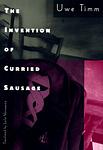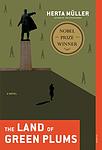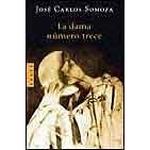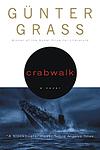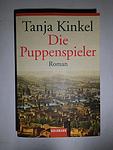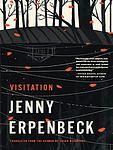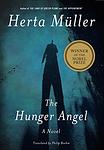The Greatest Spanish, German "Historical fiction, Fiction" Books Since 1990
Click to learn how this list is calculated.
This list represents a comprehensive and trusted collection of the greatest books. Developed through a specialized algorithm, it brings together 300 'best of' book lists to form a definitive guide to the world's most acclaimed books. For those interested in how these books are chosen, additional details can be found on the rankings page.
Genres
Historical fiction is a genre of literature that combines fictional stories with real historical events, settings, and characters. These books often take place in a specific time period and are based on research and factual information, but also include imaginative elements to create a compelling narrative. Historical fiction allows readers to experience the past in a unique and engaging way, while also providing insight into the social, cultural, and political issues of the time.
Countries
Date Range
Reading Statistics
Click the button below to see how many of these books you've read!
Download
If you're interested in downloading this list as a CSV file for use in a spreadsheet application, you can easily do so by clicking the button below. Please note that to ensure a manageable file size and faster download, the CSV will include details for only the first 500 books.
Download-
1. The Book Thief by Markus Zusak
Set in Nazi Germany during World War II, the novel follows the story of a young girl who finds solace in stealing books and sharing them with others. In the midst of the horrors of war, she forms a bond with a Jewish man her foster parents are hiding in their basement. The story is narrated by Death, offering a unique perspective on the atrocities and small acts of kindness during this period. The girl's love for books becomes a metaphor for resistance against the oppressive regime.
-
2. The Reader by Bernhard Schlink
"The Reader" is a poignant narrative centered around a young German boy's complex relationship with an older woman, who later turns out to be a former Auschwitz guard. Their relationship begins with her teaching him to read, but takes a drastic turn when she disappears, only to reemerge on trial for war crimes. The novel explores themes of guilt, shame, and redemption, as the boy, now a law student, grapples with his feelings for a woman he once loved, but whose past actions he cannot reconcile with.
-
3. The Shadow of the Wind by Carlos Ruiz Zafon
The novel follows the story of a young boy in post-war Barcelona, who discovers a mysterious book in a hidden library that his father takes him to, which houses forgotten books. The boy becomes captivated by the book and its author, but as he grows older, he realizes that someone is destroying all books written by this author. As he delves deeper into the mystery, the boy's life becomes intertwined with the author's, revealing a dark and tragic past that someone wants to be kept hidden. The story is a mix of romance, mystery, and a historical narrative set against the turbulent backdrop of a city recovering from war.
-
4. The Club Dumas by Arturo Pérez-Reverte
The book follows Lucas Corso, a book detective who is hired to authenticate a rare manuscript by Alexandre Dumas. As he delves into the investigation, he finds himself entangled in a mystery involving two other books: a rare edition of "The Three Musketeers" and a satanic text, "The Book of Nine Doors of the Kingdom of Shadows". The narrative becomes a complex puzzle as Corso uncovers connections between the books, while also dealing with a seductive woman who seems to have stepped out of a Dumas novel, a mysterious killer, and a group of bibliophiles obsessed with Dumas. The lines between fiction and reality blur as he gets closer to the truth.
-
5. Vertigo by W. G. Sebald
"Vertigo" is a complex narrative that combines elements of fiction, travelogue, biography, and autobiography. The novel is divided into four sections, each exploring the life and works of different historical figures such as Stendhal, Kafka, and Casanova, as well as the author's own experiences. The narrative is characterized by its exploration of themes such as memory, identity, and the past, often blurring the lines between fact and fiction. The book is also notable for its distinctive style, featuring long, meandering sentences and a lack of traditional plot structure.
-
6. The Invention of Curried Sausage by Uwe Timm
The book is a fictional account of the creation of the popular German fast food, curried sausage. The story unfolds through the narration of a young journalist who visits an elderly woman, believed to be the inventor of the dish during World War II. It explores the woman's tumultuous love affair with a young sailor during the chaotic final days of the war, her struggle for survival, and the circumstances that led to the creation of the spicy sausage. The novel is a blend of romance, war-time survival, and culinary innovation.
-
7. The Land Of Green Plums by Herta Müller
The novel is a poignant exploration of life under a repressive regime, following a group of young friends in Romania during the totalitarian rule of Nicolae Ceaușescu. Through the eyes of the narrator, a young woman with aspirations of freedom and self-expression, the story delves into the oppressive atmosphere of surveillance, fear, and betrayal that permeates their existence. As they struggle to maintain their integrity and hope amidst the dehumanizing forces of the state, the friends are inexorably drawn towards tragic outcomes, illustrating the devastating impact of living under constant oppression and the indomitable spirit that resists it.
-
8. The Heretic by Miguel Delibes
"The Heretic" is a historical novel set during the Spanish Inquisition. It follows the life of a man born in 16th century Spain, who, despite being raised in a strictly Catholic environment, begins to question the teachings and practices of the Church. As he grows older, he becomes involved in the Protestant Reformation, risking his life in a society where heresy is punishable by death. This book explores themes of faith, religious persecution, and the struggle for freedom of thought.
-
9. Measuring the World by Daniel Kehlmann
"Measuring the World" is a historical novel that reimagines the lives of two brilliant and driven men, German mathematician Carl Friedrich Gauss and German geographer Alexander von Humboldt. The narrative alternates between the two protagonists, exploring their individual quests to quantify and understand the world. Gauss, a child prodigy from a poor family, rises to become one of the greatest mathematicians in history, while Humboldt, a wealthy and ambitious explorer, embarks on a five-year journey across South America. Their paths converge in a humorous and touching manner, highlighting the contrast between their approaches to knowledge and discovery.
-
10. Soldiers of Salamis by Javier Cercas
This novel revolves around a true event during the Spanish Civil War, where a nationalist soldier spares the life of a famous poet who was about to be executed. The story is told from the perspective of a journalist who becomes obsessed with the incident and embarks on a quest to uncover the truth about what happened. As he delves deeper, he discovers the complexities of heroism, history, and memory, and is forced to question his own understanding of these concepts.
-
11. La Dama Número Trece by José Carlos Somoza
This novel is a thrilling blend of mystery, horror, and fantasy, revolving around a struggling writer who becomes the target of a secret society known as "The Thirteen Ladies". These shadowy figures have the ability to manipulate reality through the power of words and storytelling. As he is drawn deeper into their world, he must uncover their secrets and find a way to survive their deadly games. The narrative is a rich exploration of the power of language and mythology, with a suspenseful plot that keeps readers on the edge of their seats.
-
12. The Blind Side of the Heart by Julia Franck
"The Blind Side of the Heart" is a historical novel that explores the life of a German woman before, during, and after World War II. The story begins with her abandonment of her young son at a railway station, then flashes back to her own childhood, her experiences during the war, and her tumultuous relationships. The narrative provides a deep and unflinching look at the psychological effects of war and the struggle for survival, as well as the profound impact of trauma and loss.
-
13. Crabwalk by Günter Grass
This novel delves into the tragic sinking of the Wilhelm Gustloff, a German ship, during World War II, through the eyes of a journalist investigating the event's historical and personal ramifications. The narrative weaves together past and present, exploring the intergenerational impact of the catastrophe on survivors and their descendants. The author employs a unique storytelling technique, the "crabwalk," moving backward and forward in time to reveal the complexities of guilt, memory, and the reinterpretation of history. Through its intricate plot and deep character exploration, the book addresses the themes of nationalism, the repercussions of war, and the struggle to come to terms with one's heritage.
-
14. Die Puppenspieler by Tanja Kinkel
Set against the backdrop of the late Middle Ages, the novel weaves a tale of intrigue, power, and betrayal, following the lives of two families of puppeteers who become embroiled in the political machinations of their time. As they travel through the tumultuous landscapes of Europe, they encounter historical figures and events, from the fall of the Knights Templar to the turmoil of the Papal States. The families must navigate the treacherous waters of courtly life, where the art of puppetry becomes a metaphor for the control and manipulation exercised by the ruling classes. Their journey is not only a physical one but also a quest for artistic freedom and personal integrity in an era rife with corruption and upheaval.
-
15. Sepharad by Antonio Muñoz Molina
"Sepharad" is a compelling tapestry of narratives that weaves together stories of displacement, loss, and memory across different times and geographies. The novel explores the experiences of various characters, some historical and others fictional, who face the consequences of exile and persecution. Through their interconnected tales, the book delves into the themes of identity, the enduring impact of the Spanish Inquisition, the Holocaust, and the broader human condition of searching for belonging. The title references the Hebrew word for Spain, invoking the Sephardic Jewish diaspora and the broader sense of longing for a homeland that resonates throughout the novel.
-
16. Visitation by Jenny Erpenbeck
"Visitation" is a novel that explores the history of a house located by a lake in Brandenburg, Germany, and the various inhabitants it has seen over the centuries. The narrative spans from the early 20th century to the post-war period, encompassing the tumultuous events of the Weimar Republic, the Third Reich, and the German Democratic Republic. Each chapter is dedicated to a different resident's story, including a Jewish family, an architect, a young girl, and a Soviet officer, among others, creating a tapestry of human experiences and emotions shaped by the historical and political upheavals of the time.
-
17. Fortune's Wheel by Rebecca Gablé
"Fortune's Wheel" is a historical novel that transports readers to the tumultuous period of the Hundred Years' War and the Black Death in Europe. The story revolves around a young English craftsman who rises from the ashes of personal tragedy. As he navigates the complex social hierarchies and political turmoil of the 14th century, he finds himself caught between loyalty and ambition, love and duty. The protagonist's journey is one of resilience and transformation, set against the backdrop of a world where the whims of fate can uplift or destroy the fortunes of men. Through vivid storytelling, the novel explores themes of power, destiny, and the enduring human spirit.
-
18. The Hunger Angel by Herta Müller
"The Hunger Angel" is a poignant novel that explores the harrowing experiences of a young man deported to a Soviet labor camp after World War II. The narrative delves into the psychological and physical toll of life in the camp, where the protagonist grapples with extreme hunger, harsh conditions, and the struggle to maintain a sense of identity and humanity. Through lyrical and evocative prose, the book captures the intense emotions and survival mechanisms of those ensnared in the brutal realities of historical political oppression.
Reading Statistics
Click the button below to see how many of these books you've read!
Download
If you're interested in downloading this list as a CSV file for use in a spreadsheet application, you can easily do so by clicking the button below. Please note that to ensure a manageable file size and faster download, the CSV will include details for only the first 500 books.
Download




